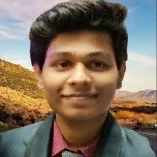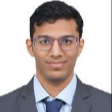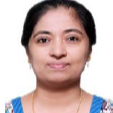International Journal of Engineering and Manufacturing (IJEM)
IJEM Vol. 14, No. 1, 8 Feb. 2024
Cover page and Table of Contents: PDF (size: 1255KB)
Author(s)
Index Terms
Image generation, GAN, text to image, Artificial intelligence, Machine learning
Abstract
Reading the words can be confusing, and it may be hard to picture what is happening. There are some circumstances where words can be misunderstood. It's much simpler to recognize text if it's displayed as an image. The use of visuals is proven to increase viewership and retention.
Synthesizing realistic images automatically is a challenging undertaking, and even the most advanced artificial intelligence and machine learning algorithm has trouble meeting this standard. GANs (Generative Adversarial Networks) are just one example of a powerful neural network architecture that has shown promising results in recent years. Existing text-to-image methods can generate examples that generally reflect the meaning of the provided descriptions, but they often lack the necessary details and colorful object elements.
The primary objective of our research was to explore diverse architectural methodologies with the intention of facilitating the generation of visual representations from textual descriptions. By delving into this investigation, we aimed to discover and examine various approaches that could effectively support the creation of visuals that accurately depict the content and context provided within written narratives. Our aim was to unlock new possibilities in the realm of visual storytelling by establishing a strong connection between language and imagery through innovative architectural techniques.
Cite This Paper
Nimesh Yadav, Aryan Sinha, Mohit Jain, Aman Agrawal, Sofia Francis, "Generation of Images from Text Using AI", International Journal of Engineering and Manufacturing (IJEM), Vol.14, No.1, pp. 24-37, 2024. DOI:10.5815/ijem.2024.01.03
Reference
[1]Ramesh, A., Pavlov, M., Goh, G., Gray, S., Voss, C., Radford, A., ... & Sutskever, I. (2021, July). Zero-shot text-to-image generation. In International Conference on Machine Learning (pp. 8821-8831). PMLR.
[2]Yu, J., Xu, Y., Koh, J. Y., Luong, T., Baid, G., Wang, Z., ... & Wu, Y. (2022). Scaling autoregressive models for content-rich text-to-image generation. arXiv preprint arXiv:2206.10789..
[3]David Alvarez-Melis and Judith Amores. The emotional gan: Priming adversarial generation of art with emotion. In 2017 NeurIPS Machine Learning for Creativity and Design Workshop, 2017.
[4]Luca Bertinetto, F. Henriques, Jack Valmadre, Philip Torr, and Andrea Vedaldi. Learning Feed-forward one-shot learners. In D. D. Lee, M. Sugiyama, U. V. Luxburg,I. Guyon, and R.Garnett (eds.), Advances in Neural Information Processing Systems 29,pp. 523–531. Curran Associates, Inc., 2016. URL http://papers.nips.cc/paper/6068-learning-feed-forward-one-shot-learners.pdf.Oscar Chang, Lampros Flokas, and Hod Lipson. Principled weight initialization for hypernetworks.In International Conference on Learning Representations, 2020.
[5]Bowen Li, Xiaojuan Qi, Thomas Lukasiewicz, and Philip H. S. Torr. 2019. Controllable text-to-image generation. Proceedings of the 33rd International Conference on Neural Information Processing Systems. Curran Associates Inc., Red Hook, NY, USA, Article 185, 2065–2075.
[6]Panos Achlioptas, Maks Ovsjanikov, Kilichbek Haydarov, Mohamed Elhoseiny, and Leonidas Guibas. Artemis: Affective language for visual art. arXiv preprint arXiv:2101.07396, 2021.
[7]Nilsback, Maria-Elena, and AndrewZisserman. ”Automated flower classification over a large number of classes.” Computer Vision, Graphics&ImageProcessing,2008.ICVGIP’08.SixthIndianConferenceon.IEEE,2008.
[8]Ivan Anokhin, Kirill Demochkin, Taras Khakhulin, Gleb Sterkin, Victor Lempitsky, and DenisKorzhenkov. Image generators with conditionally-independent pixel synthesis. arXiv preprintarXiv:2011.13775, 2020.
[9]Goodfellow,Ian,et al. ”Generative adversarial nets.” Advances in neural information processing systems.2014.
[10]Ahmed Elgammal, Bingchen Liu, Mohamed Elhoseiny, and Marian Mazzone. Can: Creative adversarial networks, generating” art” by learning about styles and deviating from style norms arXiv:1706.07068, 2017.
[11]Ahmed Elgammal, Bingchen Liu, Diana Kim, Mohamed Elhoseiny, and Marian Mazzone. The Shape of art history in the eyes of the machine. In Proceedings of the AAAI Conference onArtificial Intelligence, volume 32, 2018.
[12]Zhang, Han, et al. ”Stackgan:Text to photo-realistic image synthesis with stacked generative adversarial networks.”arXivpreprint(2017)
[13]Gu, S., Chen, D., Bao, J., Wen, F., Zhang, B., Chen, D., ... & Guo, B. (2022). Vector quantized diffusion model for text-to-image synthesis. In Proceedings of the IEEE/CVF Conference on Computer Vision and Pattern Recognition (pp. 10696-10706).
[14]Zhou, Y., Zhang, R., Chen, C., Li, C., Tensmeyer, C., Yu, T., ... & Sun, T. (2022). Towards Language-Free Training for Text-to-Image Generation. In Proceedings of the IEEE/CVF Conference on Computer Vision and Pattern Recognition (pp. 17907-17917).
[15]Matsumori, S., Abe, Y., Shingyouchi, K., Sugiura, K., & Imai, M. (2021). LatteGAN: Visually Guided Language Attention for Multi-Turn Text-Conditioned Image Manipulation. IEEE Access, 9, 160521-160532.
[16]Reed, Scott, et al. ”Generative adversarial text to image synthesis.” arXivpreprintarXiv:1605.05396(2016).
[17]Xu, T., Zhang, P., Huang, Q., Zhang, H., Gan, Z., Huang, X., & He, X. (2018). Attngan: Fine-grained text to image generation with attentional generative adversarial networks. In Proceedings of the IEEE conference on computer vision and pattern recognition (pp. 1316-1324).
[18]Nasr, A., Mutasim, R., & Imam, H. SemGAN: Text to Image Synthesis from Text Semantics using Attentional Generative Adversarial Networks. In 2020 International Conference on Computer, Control, Electrical, and Electronics Engineering (ICCCEEE) (pp. 1-6). IEEE.
[19]Özgen, A. C., Aghdam, O. A., & Ekenel, H. K. (2020, October). Text-to-Painting on a Large Variance Dataset with Sequential Generative Adversarial Networks. In 2020 28th Signal Processing and Communications Applications Conference (SIU) (pp. 1-4). IEEE.
[20]Zhang,Han,et al.”Stackgan++:Realistic image synthesis with stacked generative adversarial networks. ”arXivpreprintarXiv:1710.10916(2017).
[21]B. Li, X. Qi, T. Lukasiewicz and P. H. S. Torr, "ManiGAN: Text-Guided Image Manipulation," 2020 IEEE/CVF Conference on Computer Vision and Pattern Recognition (CVPR), 2020, pp. 7877-7886, doi: 10.1109/CVPR42600.2020.00790.
[22]Wu. C, Liang. J, Hu.X, Gan. Z, Wang. J, Wangi. L, Liu. Z, Fang. Y and Duan. N, “NUWA-Infinity: Autoregressive over Autoregressive Generation for Infinite Visual Synthesis” 2022 arXiv.
[23]Scott Reed, Zeynep Akata, Xinchen Yan, Lajanugen Logeswaran, Bernt Schiele, Honglak Lee , “Generative Adversarial Text to Image Synthesis" in University of Michigan and Max Planc Institute for Informatics June 2016.
[24]Yadav, N., & Sinha, A, “Augmented Reality and its Science”.
[25]Gregor, K., Danihelka, I., Graves, A., Rezende, D., and Wierstra, D. Draw: A recurrent neural network for image generation. In ICML, 2015.
[26]Ankit Yadav1, Dinesh Kumar Vishwakarma2, Recent Developments in Generative Adversarial Networks: A Review (Workshop Paper),2020.
[27]Isola, P., Zhu, J.-Y., Zhou, T., and Efros, A. A. Image-to image translation with conditional adversarial networks. In Proceedings of the IEEE conference on computer vision and pattern recognition, pp. 1125–1134, 2017.
[28]Koh, J. Y., Baldridge, J., Lee, H., and Yang, Y. Text-toimage generation grounded by fine-grained user attention. In Proceedings of the IEEE/CVF Winter Conference on Applications of Computer Vision, pp. 237–246, 2021.
[29]Jain, M., Sinha, A., Agrawal, A., & Yadav, N. (2022, November). Cyber security: Current threats, challenges, and prevention methods. In 2022 International Conference on Advances in Computing, Communication and Materials (ICACCM) (pp. 1-9). IEEE.
[30]Salimans, T., Goodfellow, I., Zaremba, W., Cheung, V., Radford, A., and Chen, X. Improved techniques for training gans. arXiv preprint arXiv:1606.03498, 2016.
[31]Mansimov, E., Parisotto, E., Ba, J. L., and Salakhutdinov, R. Generating images from captions with attention. arXiv preprint arXiv:1511.02793, 2015
[32]Tao, M., Tang, H., Wu, S., Sebe, N., Wu, F., and Jing, X.-Y. Df-gan: Deep fusion generative adversarial networks for text-to-image synthesis. arXiv preprint arXiv:2008.05865, 2020.
[33]Wu, Chenfei & Liang, Jian & Ji, Lei & Yang, Fan & Fang, Yuejian & Jiang, Daxin & Duan, Nan. (2022). NÜWA: Visual Synthesis Pre-training for Neural visUal World creAtion. 10.1007/978-3-031-19787-1_41.




